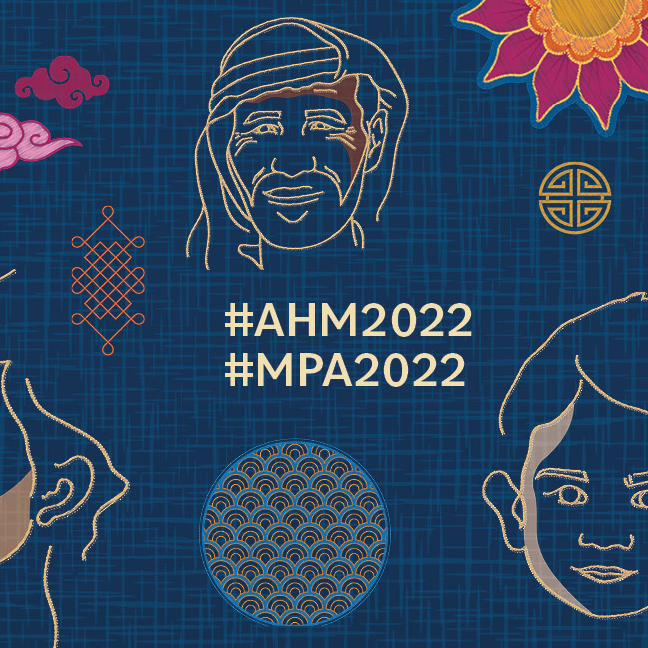Every year, May is recognized as Asian Heritage Month, making it an opportune time to highlight the key role played by Canadian citizens and residents of Asian heritage who for decades have helped to build and form the country as we know it today. Across all disciples and all walks of life, Asians have made remarkable contributions to science, medicine, business, entrepreneurship, education and much more. While there are countless achievements to commemorate here, it is also important to remember that inclusivity is a right for everyone based on their inherent value as human beings.
This month also offers a timely chance to reflect on the ways in which Canadian narratives of diversity and multiculturalism inform the lived experiences of racialized communities. While there is much that we as a country can be proud of, fostering inclusivity and equity must be an ongoing priority. To begin with, it is important to recognize the diversity of peoples and ethnicities that fall under this umbrella term1. This is a prerequisite for dismantling stereotypical assumptions and for celebrating the varied contributions that Asians have made to civilization overall, and to our country specifically.
The Canadian Context
In Canada, Asians played a central role in connecting the nation from end to end by building the Canadian Pacific Railway, which to this day is a source of national pride2. Yet, it is equally important to learn from the systemic historical injustices that people of color, and Asians in particular have faced2. From the Chinese head tax to the Komataga Maru incident, there is ample opportunity in our history books to critically analyze how these examples speak to how notions of citizenship and belonging in the Canadian context have evolved over time.
Most poignantly for our times, the rise in anti-Asian crime especially since the onset of the pandemic is troubling. According to Statistics Canada, 2020 saw a 301% rise in hate crimes against East and Southeast Asian Canadians, compared to 20193. Furthermore, this only accounts for crimes that were reported to the police, suggesting that the prevalence may be far greater, if we consider the incidents that go unreported. Add to this, the harder to measure, yet also damaging and psychologically stressful experience of being on the receiving end of microaggressions and we get closer to seeing the full picture of how racism and discrimination can manifest. This speaks to social inequities that permeate every aspect of life, including workplaces. Here, HR professionals can intervene in meaningful ways to spark change at all levels.
HR Professionals’ Role in Enhancing Workplace Equity
People’s lives outside of work impact their performance, productivity and sense of belonging at work. Given the above, it may be safe to assume that some workers are coming into work with the stress of experiencing racism to varying degrees. This may be compounded by discrimination faced along other dimensions of their identity, such as gender, age, religious affiliation, ability, sexual orientation, language skills and nationality.
On the one hand, HR professionals like yourself can go great lengths to support employees facing these conditions. On the other hand, HR leaders are also well-poised to integrate systemic, community-driven change throughout teams, organizations and even across industries. As champions of diversity, equity and inclusion who collaborate cross-departmentally, you and your fellow colleagues can truly make a difference in how welcoming and equitable workplaces can be. Not only does this reinforce your organization’s ethical commitment, but it also makes good business because diversity fosters creativity and innovation which are vital for growth.
Relevant, Upcoming HRPA Events
Whether you are just getting started on this journey or are looking to advance your skills on this front, there are plenty of HRPA resources to help you, as below:
- Consider obtaining certification in diversity and inclusion or attending this live, virtual event on how applied behavioural design and the scientific process facilitate inclusion and belonging.
- Accounting for the intersecting factors that shape experiences of racialization, this certificate on pay equity and a webinar on the same topic may also be of interest to you.
- Shifting workplace ethos and foundational principles to account for social justice demands change. Check out this webinar on leading change and this masterclass on leadership skills amidst rapid, constant change.
On-Demand HRPA Resources
If you would like to expand your awareness of discrimination in the workplace and antiracism in this domain, but cannot attend a live event, here are some on-demand and e-learning professional development opportunities you can take advantage of:
- Anti-Racism for Workplaces: A digital learning program that instructs employees on how to identify and prevent workplace racism.
- This comprehensive list of offerings on equity, diversity, inclusion, leadership allyship and unconscious bias.
- Sessions from the 2021 EDI Summit.
- Part of the Return to the Workplace series, the sessions on prioritizing employee mental health and understanding the nuances of corporate immigration are also timely topics.
Footnote 1: About Asian Heritage Month
Footnote 2: Significant events in history of Canadians of Asian heritage
Footnote 3: Police-reported anti-Asian hate crimes in Canada jumped 300 per cent in 2020: StatCan
